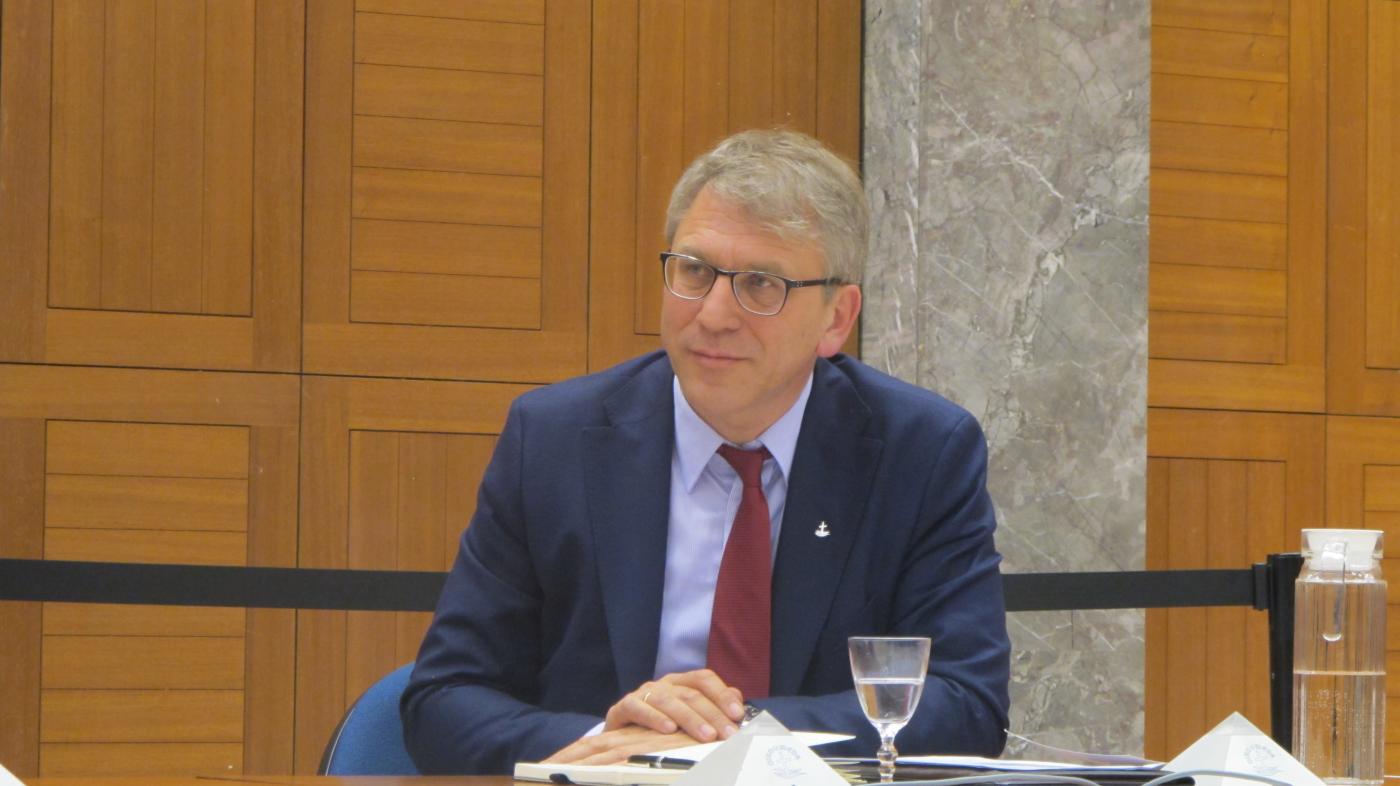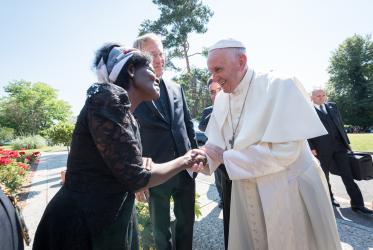Reflecting on the relevance of religion in today’s world, World Council of Churches (WCC) general secretary Rev. Dr Olav Fykse Tveit spoke at a sustainable development seminar in Rome on 4 May, posing a question to the participants:
“Is religion able to bring hope to people of today?”
The seminar, entitled ““Sustainable development and the future of work in the context of the Jubilee of Mercy,” was held at the Notre Dame University Global Gateway from 2-5 May. The purpose of the gathering was to deepen understanding of the social doctrine of the Catholic Church in relation to the concept of decent work, its constitutive elements and its significance, especially with a view to contributing to the eradication of poverty and to the achievement of other relevant sustainable development goals.
“Hope requires both an analysis of realities and defining of what is wrong and what needs to be changed, and a vision of what goes beyond what we see, and actions according to this vision. In other words: Hope includes both critique and change,” Tveit said.
The seminar, which took place in the context of the Jubilee of Mercy, was also an invitation to explore links between the theology of mercy and the changing situation of labour in a global context. Tveit spoke during a panel discussion with the theme “The service of mankind, of every condition, in every weakness and need.”
Tveit shared an example of this approach: a joint project with the WCC and International Labour Organization (ILO) on “Advancing Peace through Social Justice” that WCC and ILO have undertaken together with Christian and Muslim partners in Egypt.
Representatives from Egypt also attended the seminar and shared information on the project, which addresses massive youth unemployment in the country. “This is one example among others that religion should express itself in something practical and concrete that can bring hope today,” said Tveit.








